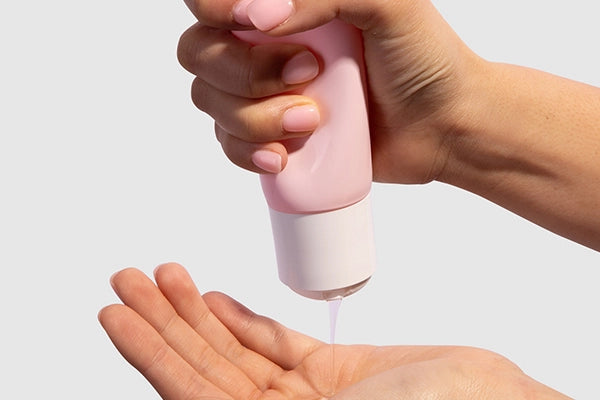If you’ve never had an orgasm before, or you’re not sure if you have, you’ve come to the right place.
First of all, it’s very common to have never had an orgasm. While masturbation is increasingly becoming a hot topic and a regular part of our wellness routine, it’s not necessarily always accompanied by orgasm. You may even already be masturbating or using sex toys but not ending in orgasm.
People of all bodies can struggle with orgasm, but it can be especially difficult for people with vulvas to reach orgasm, especially when they’re having sex with a partner.
Fear not — VUSH’s sexpert, Steph, is here to shed some light on why you may find it difficult to orgasm and share the best tips for having your first orgasm.
What is an orgasm?
An orgasm is the body’s physiological response to pleasure or sexual stimulation. When we feel good enough to activate the nerves in our genitals, we can experience orgasm. Orgasm is generally a build up of pleasure, followed by contractions of the pelvic muscles, ending in an ultimate sense of relief and relaxation. It feels different for everyone, some people may experience a sneeze-like sensation, a concoction of fireworks within the whole body, or even ejaculation or squirting.
But what if you’re not having an orgasm? Here’s our sexpert’s deep dive into why you may not be getting to the finish line.
Barriers to having an orgasm
Anxiety + stress
Your body is unlikely to orgasm if you are experiencing anxiety during sex or self pleasure. Whether it be anxiety over family members being in the next room, anxiety over what your partner is thinking, or stress about taking too long to finish, your body is interpreting that anxiety as stress. When your body is under stress, it believes you are not in a safe environment. Your body is not going to do anything that could lead to sexual pleasure if it is under too much stress.
Medication + illness
Our mental and physical health is another key factor that can influence our sexual health. Poor mental health can contribute to the stress we mentioned earlier. Additionally, medications like antidepressants or birth control can lower your body’s ability to experience desire. If your health is not at its best, your body may be focusing most of its energy on keeping you alive, and not prioritising pleasure and orgasm. If you’re worried medication or illness may be the reason for your lack of orgasms, speak to a healthcare professional before making any big lifestyle changes.
Lack of clitoral stimulation
One of the main reasons people struggle to orgasm is because they are having sex that is unlikely to lead to orgasm. For vulva owners, this includes sex that focuses on vaginal penetration. Internal stimulation is much less likely to lead to orgasm because the pleasure centre of the body is the clitoris, which is best accessed on the outside of the vulva, not inside the vagina! It’s possible that the main reason you’re not having an orgasm is that you’re not focusing on the right body parts during sex!
10 tips for having an orgasm
1. Anxiety management techniques
If sexual anxiety is a barrier for you, we suggest reflecting on whether this type of anxiety is present in other aspects of your life, in non-sexual contexts. If it is, you can use any anxiety management strategies that you use in everyday life, during sex, such as mindful breathing or grounding. Try focusing on how your body feels to take you back to the present moment and away from your anxious mind.
2. Remove orgasm from the goal
Reframing your mindset and making pleasure the goal, rather than orgasm, can be a game changer. When orgasm is the goal, there is extra pressure on you and your body to perform, which can exacerbate sexual anxiety. Try taking orgasm off the table completely, to reduce stress and the pressure of getting there. You might even find that by removing the expectation to orgasm, you end up having an orgasm!
3. Clitoral stimulation
We cannot emphasise enough how much of a game-changer it can be to focus on external pleasure during sex. This type of stimulation is guaranteed to increase the chance of orgasm because the clitoris has the most nerve endings and pleasure potential. Types of clitoral stimulation to try include rubbing, tapping, circling, stroking, pulsing, grinding, and vibrating against the clitoris.
4. Learn about your body
The clitoris isn’t the only place you need to know about! Learning about your body and your anatomy is an essential step in the orgasm process. Start by brushing up on the anatomy of the vulva so you know exactly what you’re working with, then advance your knowledge through the various erogenous zones on the body and different ways to reach orgasm.
5. Notice signs of orgasm
Recognising the signs of orgasm can be very beneficial. Vulva owners may feel a pleasurable pulse, pressure or sensitivity around their clitoris, quickening breath, contracting pelvic muscles, flushed skin, and/or increased heart rate. When you notice these signs in your body, embrace them, and stick to what’s working or build the sensation by taking the stimulation up slightly.
6. Engage the 5 senses
When you start to feel those signs of orgasm, use your 5 senses to build on them. A big part of having an orgasm is tuning into your body and listening to what you need to get yourself there. Use breath or sound by exhaling or making an audible noise to match the pace of the sex or the vibrator setting. If sexual anxiety is a concern for you, focus on using your breath to come back into your body and gain control. To incorporate movement and touch, gently squeeze your pelvic floor muscles or core, and sway or circulate your hips to the rhythm.
9. Use lubricant
We believe lube is a must for solo and partnered play. Lube not only makes things feel more comfortable for practical reasons, but it can actually increase sensation for pleasurable reasons! The art of applying lube can be a big turn-on that signals to your body that you are ready for sex. We recommend a water-based lube when pairing with sex toys or condoms.
10. Chat with an expert
Since these tips are general in nature, you may benefit from a more personalised deep dive with an expert. It’s okay to seek help for sex-related concerns, such as orgasms! Did you know there are healthcare professionals that specialise in these types of topics? If you can, book a few sessions with a sex therapist, sexologist, or pleasure coach. If you think that your lack of orgasms is more of a medical concern, talk to a GP, gynaecologist, or pelvic physiotherapist.
Read more on Stimulation:
Want to learn more about orgasms? Read our orgasms explained blog, which answers all your specific FAQ's about orgasm, from pain, to squirting, to duration of orgasm. We also have a guide on using lube and a list of the best masturbation positions to achieve orgasm. Ready to enhance your orgasm? Learn about edging!
SHOP VUSH NOW




